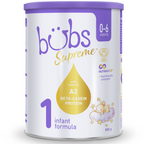Breastfed Babies & Constipation
Constipation and Breastfeeding
There are many benefits to breastfeeding, but one of the least known is that it helps to avoid constipation in babies. Breastfed babies tend to poo more often and have softer poos than babies of the same age who are formula fed.
In the early weeks of life especially, it’s quite normal for breastfed babies to poo with almost every nappy change. This can cause some concern to parents, who wonder if perhaps their baby has diarrhoea or is unwell.
Until a newborn’s gut settles and their digestion matures, frequent loose poos are completely normal. In the absence of other concerning symptoms such as vomiting, a rash, sleepiness or disinterest in feeding, it’s reasonable to assume that frequent pooing is simply a sign that a baby is getting plenty of breast milk. The frequency of their poos does settle, it just takes time.
Have You Done Another One?!
Breast milk has a natural laxative which helps to keep poos more liquid. It is also more easily metabolised than formula, and breastfed babies are less likely to overfeed. This is because they regulate their own feeding volumes by their sucking action.
Bottle-fed babies can be persuaded to accept more milk when they feed, though breastfed babies tend to stop when they’re full and satisfied. It’s very difficult to persuade a breastfed baby to continue sucking when they feel they’ve had enough.
How Do Breastfed Poos Vary from Formula Fed Poos?
Babies who are breastfed tend to have poos which vary in colour and texture. The first poo a newborn has is called meconium which is green to black in colour. Babies who are breast or formula fed from birth pass meconium.
Meconium is made up of cells which lined the baby’s gut in utero, as well as hair, mucous, amniotic fluid, bile and water. Meconium has no smell and is thick like tar.
Once the baby starts digesting breast milk, their poos transition to green and then yellow. Beyond the newborn stage, breastfed babies most commonly poo in all hues of yellow, from a soft pale yellow extending to mustard and orange. It’s also common for breastfed babies to have greenish poos and sometimes for their poos to contain mucous. Small ‘seeds’ which look like sesame seeds are also normal in a breastfed baby’s poos.
Breastfed babies can make explosive noises when they poo. This can cause some concern to their parents who may struggle to contain their anticipation, in waiting to see what greets them at the next nappy change.
Does Mum's Diet Matter?
A breastfeeding mother’s diet can cause changes in the colour and consistency of her baby’s poo. But it’s important to remember that the food a breastfeeding mother eats is fully digested by her body. Breast milk is made from the nutrients and water a lactating mother eats. It is not a direct version of what she has been eating.
Generally, there is not much variation in their baby’s pooing for breastfeeding mothers who eat a balanced and healthy diet.
What a Mess!
Some poos will be very loose and others more pasty. It’s not uncommon for breastfed poos to run out of the sides of a nappy. It can help to have a towel as backup, especially for babies who tend to poo when during breastfeeds.
What is That Smell?
Once the early weeks have passed and the baby’s digestion has matured, it’s common for breastfed babies to not poo for a few days. This timeframe can extend to a week or more. The reason for less frequent poos is that breast milk is easily digested and there is less likelihood of overfeeding. As long as your baby seems comfortable and not bothered, don’t be concerned.
Breastfed babies who don’t poo for a few days have a tendency to pass some very smelly wind. This is not a sign that the baby is constipated, but it does show that their gut is working as it should. Once the baby has pooed, their wind tends to settle.
Breastfed poos don’t tend to have much smell. Some people describe them as ‘new mown hay’, others as not having much odour at all.
Why Are You Making All That Noise?
Lying down to poo doesn’t have the benefit of gravity to help. Babies who are breastfed tend to have soft poos which don’t create a lot of pressure on their anus. The combination of these two factors may play a role in all the noise associated with pooing.
Unless a breastfed baby is getting insufficient quantities of milk in their feeds, or they are sick, they are very unlikely to become constipated.
What If They Seem Constipated?
In the early weeks of breastfeeding it’s common for babies to poo several times each day. This can happen without any pattern or regularity. They can grunt and groan, go red in the face and act as if they are passing a poo which is painful and hard. But as long as your baby is getting plenty of breastmilk it is unlikely they are constipated.
Constipation Treatment Options for Babies who are Breast or Formula Fed
- Give your baby a deep, warm bath.
- Gently massage their tummy in a clockwise direction.
- Gently bring your baby’s legs up to their chest and then extend them. Repeat this a few times.
- Give your baby some time to kick freely each day with their nappy off.
- Hold your baby’s ankles and gently move their legs in a bicycle action.
Remember,
Speak with your Child Health Nurse or doctor if you are concerned about your baby’s bowel habits. Constipation can be a sign of insufficient milk intake or, more uncommonly, health concerns.


